June 17 - 23, 2018: Issue 364
Barry 'Baz' Leef
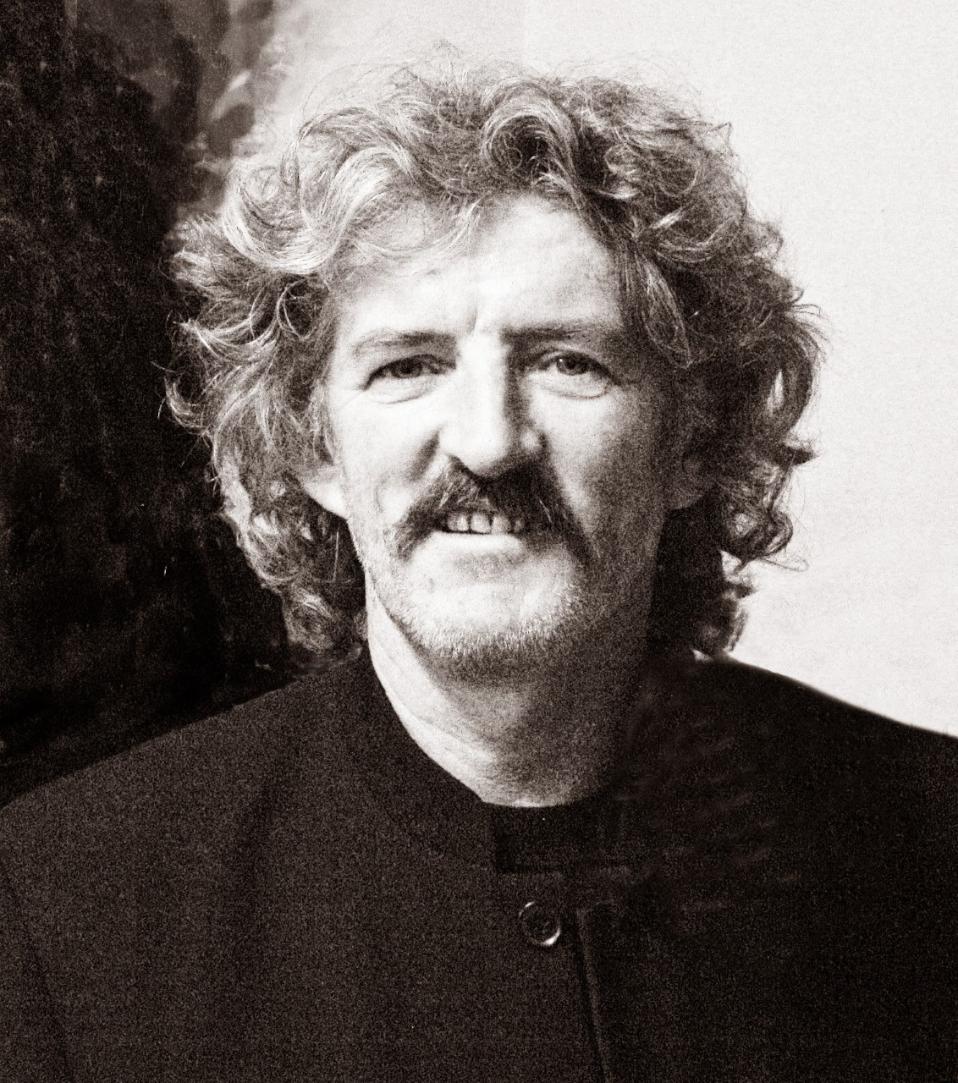
Barry Leef has been entertaining local audiences since moving to Sydney from New Zealand in 1969. 'Baz' has made a name for himself as Sydney’s number one session singer for deacdes, his repertoire including jingles for major corporations such as McDonalds, KFC and Coca-Cola.
He has fronted legendary Aussie bands Bakery and Supermarket, led the in-house band at the Sydney Musicians Club, performed with Frank Zappa, Elvin Bishop, Tom Jones and Jeff 'Skunk' Baxter to name a few.
But it's playing rhythm guitar he is most well known for - that and superb vocals. After decades of being one of the voices in Sydney Mr. Leef has released an album of ten tracks in ‘Rhythmized’ - with a local gig launch coming up Friday June 29th in Brookvale.
This week a small insight into the long and colourful career of one Barry 'Baz' Leef.
What did you do for fun while growing up?
From a very early age I fell in love with music and started recording when I was nine years of age.
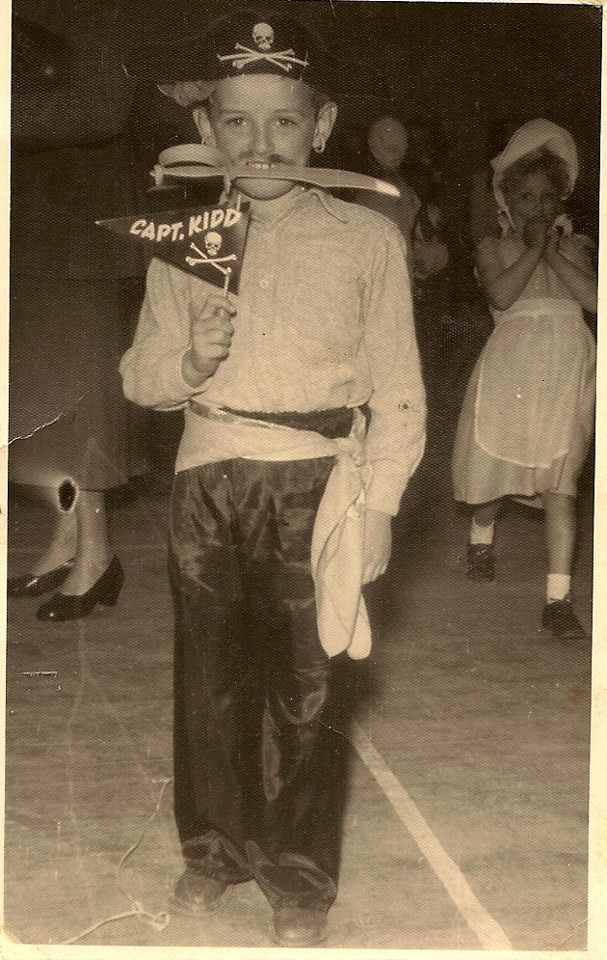
Was your dad a musician?
He played a little bit of guitar, but mainly to put us to sleep. When you’re that age you start to stay awake and listen and watch.
I was really into music right from the start so my mother bought me a ukulele when I was about 7 or 8. she hid it in the top of the wardrobe and I knew it was there so when they went out I’d sneak in there, get on a chair and get it down, and start playing it.
When she gave it to me at Christmas I started playing it immediately and they thought I was this incredibly talented kid, but I’d actually practised for months.
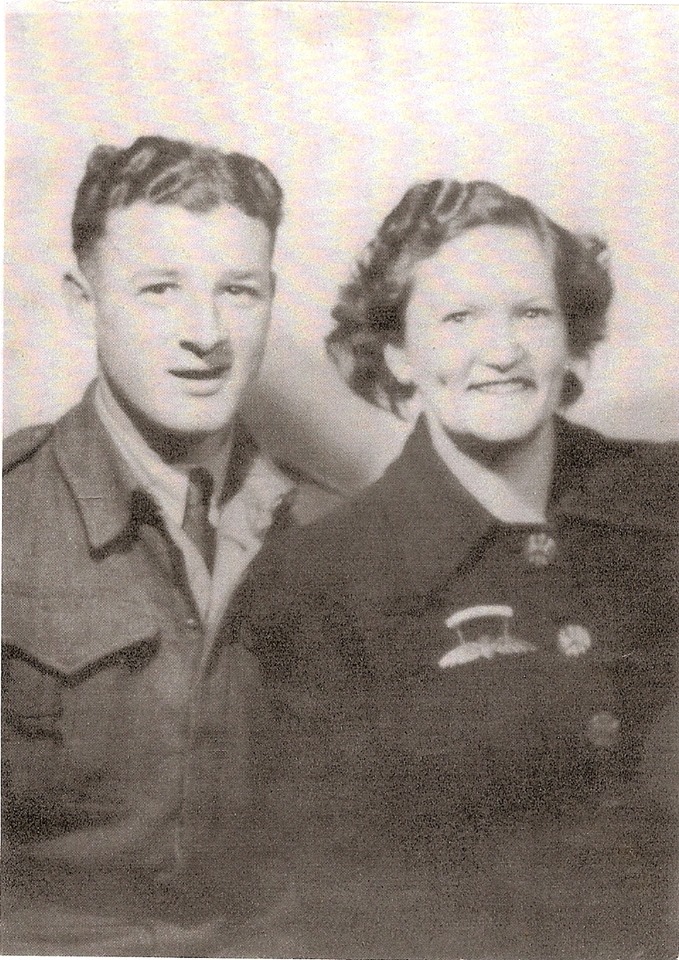
James and Nesta Leef
I was brought up in a place called Blenheim in New Zealand, a beautiful place. I went to Marlborough College but back then, in the 1960’s, you only had two choices – I was either going to be an All Black or, failing that or if you got injured, you became a musician.
Were you in a band at school?
Yes. We had a band called ‘The Beau Halley Skiffle Group’. It was all ukuleles and a tea chest bass and islander side drums. We used to open the school’s morning assembly with a song. This was really good training for us as we had to learn new tunes all the time. We were about 10 or 11 then.
It went on from there and I honestly didn’t want to do anything other than play music.
My parents said ‘that’s all very well, but you need a real job’. I did try that for a while but it wasn’t long before I left and went to Wellington and joined a band and was actually earning a living.
What was the name of that band?
The Simple Image.
At the age of 17 I was at Todd Motors in Petone working alongside fellow Blenheim musician, drummer Gordon Wylie. We soon teamed up with lead guitarist Harry Leki and eventually convinced Ron Gascoigne, who had only recently joined The Fourmyula, to become the fourth member of The Simple Image.
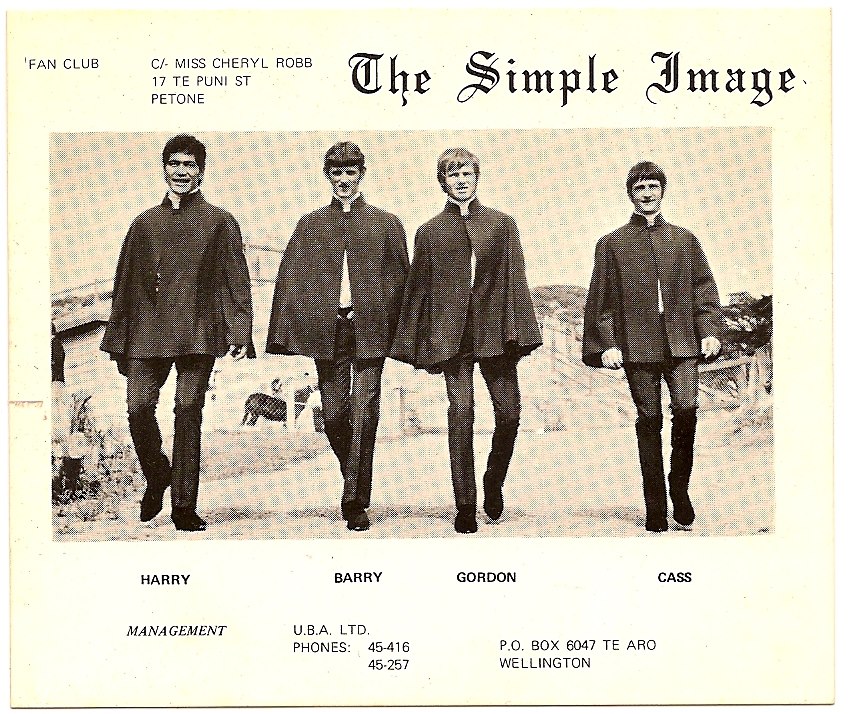
The Simple Image - agency booking card
We saved up for the best equipment and, tiring of the endless engagement parties, weddings and 21sts, were greatly relieved when promoter Tom McDonald us on his books. We toured them and eventually secured a recording deal. Our first release was Sam Cooke’s ‘Bring It On Home To Me’.
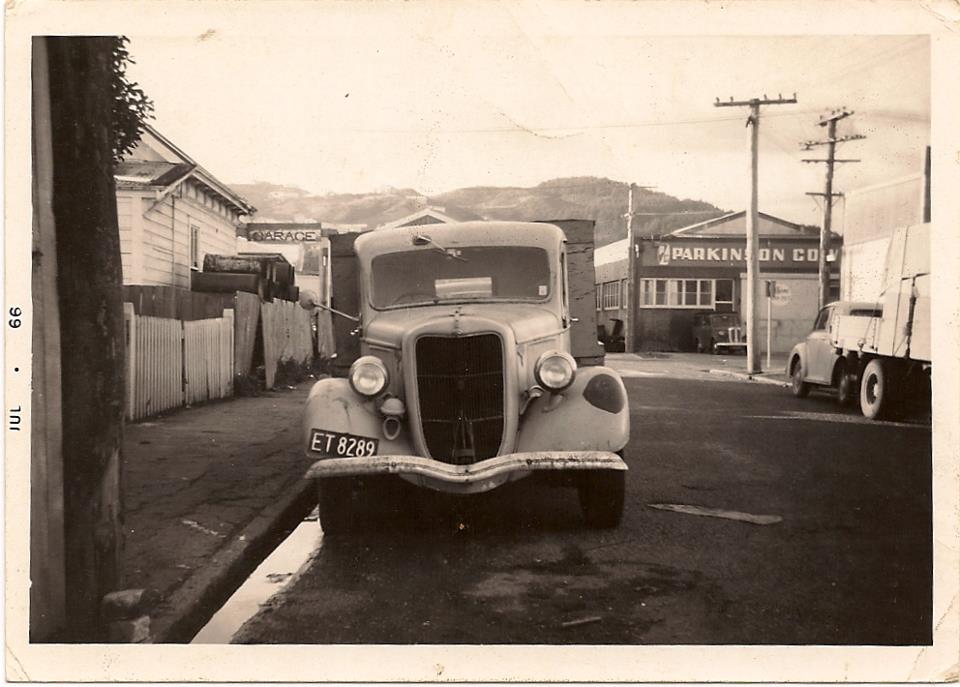
The Bandwagon, 1966 - Wellington NZ.
We were then lucky enough to put out a single called ‘Spinning, Spinning, Spinning’ which went to Number 1 on the charts in June 1968. So that was it then, a career was born.
I was 18 or 19 by then.
We went on the road for about four year. The other three guys were just terrific, never a bad word was uttered and we had such fun.
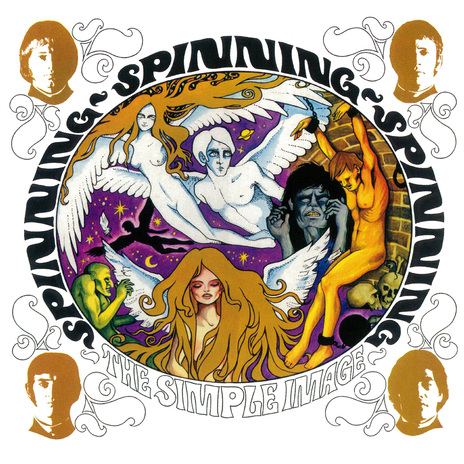
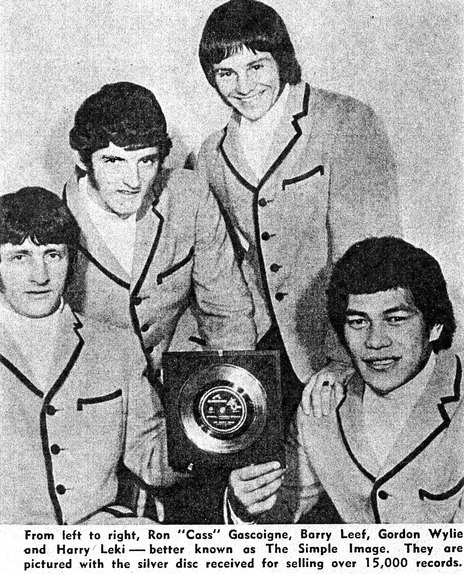
It was then time to move on – we were well known for a sort of light pop genre with a lot of vocals and a lot of harmonies. I wanted to get into something a little bit more meaty. I was really into musicians such as Stevie Winwood, who was with a band called ‘Spencer Davis Group’ which later on became ‘Traffic’. I was really into that style of music and it suited my voice and wanted to pursue that.
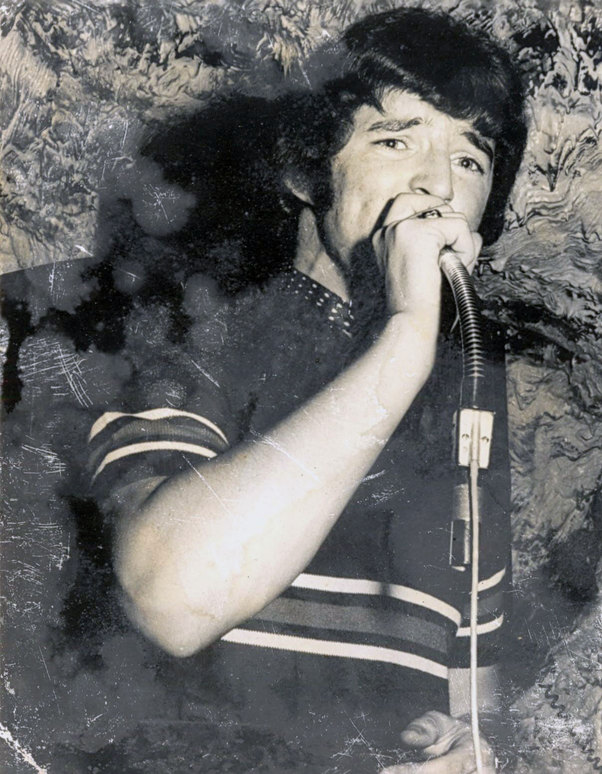
Barry Leef at Ali Baba's Wellington, circa 1969. Credit: Kevin Furey collection
I left The Simple Image and came to Sydney in 1969.
I ended up playing around the traps and got a job at Whisky a Go Go on William Street working downstairs in the Celebrity Lounge.
Sydney was jam packed with G.I’s coming from Vietnam then for R&R (Rest and Recreation). Sydney itself was pumping, was full of small clubs and larger ones with great music happening, many of them pushing Soul and West Coast American music. This was all right up my alley, I loved it.
So we worked around with a band called ‘Retaliation’ and then a band called ‘Straw Patch’. That band broke up and The Simple Image came across from New Zealand and got a gig at Whisky a Go Go as well and asked me to rejoin them, which I did.
We worked in Whisky for about two years.
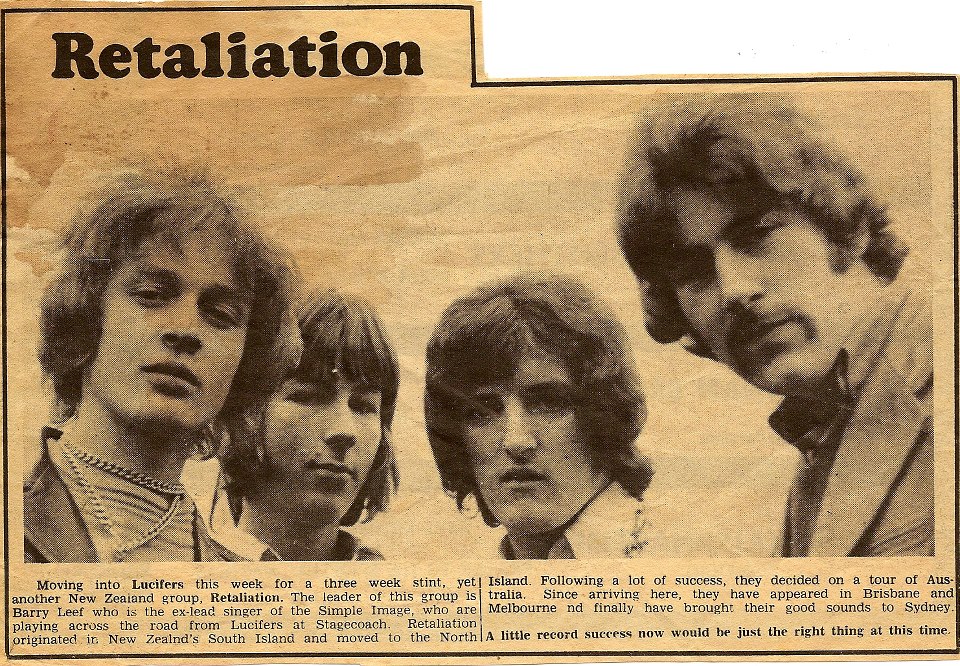
Retaliation lands in Sydney - 1969
What was your favourite room to play in, acoustics wise, then?
I loved whisky because it was more like a Showtime venue – it was set up to be a really good room.
We played Chequers too, there was also a room called the Silver Spade in Macleay street at Kings Cross – they were really alike cabaret rooms and I loved that, they were more intimate for the people listening. We weren’t really contemporary – we were playing popular music.
Eventually I wanted to be more contemporary and that’s why you’d end up playing places like the Manzil Room.
I ended up meeting a guy and we went and saw the Managing Director of the Musicians Club in Chalmers street and asked him what he was doing with the room upstairs. He said ‘not much’ and we asked if we could do some gig there. He said ‘fine; you take the responsibility of charging at the door’ and this was like having our own little business.
That went for four years and was fantastic – it was unreal.
It was just the right time; when people wanted to go out at night and listen to some great music. And we spent a lot of money on the sound system to ensure it sounded awesome – and that became a big drawcard, having a great sound system. This went right through to the latter part of the 1970’s and early 1980’s.
There was a real boom in music in the late 1970’s and 1980’s – everywhere you went there was something – Bryants at Manly Vale, The Antler at Narrabeen – everyone was going out to listen to great Australian music and musicians.
It was incredible, a great time. All the hotels were putting on music and young Australian bands were really starting to come to the fore – you had INXS, Midnight Oil, The Angels, so many – all of these and more were young then and changing everything – it was an incredible time to be a part of.
What do you think killed it – poker machines?
Not so much poker machines as these were providing a lot of work for people in the clubs and made sure they were going well. I think RBT killed it – people just wouldn’t go out anymore – they were scared they’d get pulled up by the police.
And of course there was that lag between local clubs employing minibuses to ferry home people who had had one too many drinks – that didn’t occur until years later. Although those were only running locally – not so good for further away venues.
I’m grateful really that RBT came along as it probably saved my life. There were late nights, two or three in the morning and probably two or three drinks too many when driving home – luckily I didn’t kill myself or anybody else – so I’m grateful for that but it did kill the industry I think.
What was you first gig up this way?
I was in a band called ‘Supermarket’ that used to play at The Basement in Circular Quay. This was quite a big band, around 14 piece. We used to come up to Moby Dicks at Whale Beach and play there. We loved playing there.
I moved up here in the late 1970’s and have lived up here ever since because I just love it.
We used to little gigs around the smaller restaurants just for fun and then all of a sudden Moby’s became quite a popular venue and was putting on a lot of gigs for a lot of bands.
Eventually golf clubs and other venues like RSL’s started hosting music too – Palm Beach RSL was a really popular music venue prior to being shut down through noise complaints – and a good room to play too; we played there a few times.
Just going back to New Zealand for a moment – the Māori culture is an ancient one that has a lot of music embedded in ceremonial events and storytelling and even just everyday living – was that an influence on you?
Absolutely. There’s a big block of information in that but to give a few small instances – my father was adopted by a Māori family in Dargaville during the depression of the 1930s before moving to Blenheim – so I have that spirit as part of my life along with all the protocols.
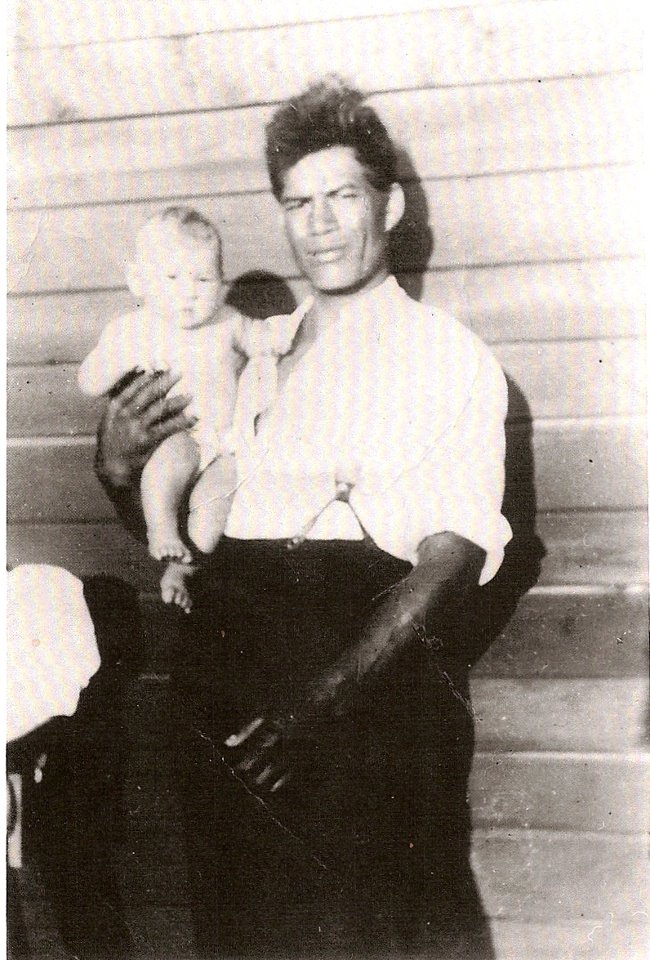
James Hall Leef at 3 months old with his dad Ruki Leef - probably in Donnelly's Crossing, very Northland NZ.
So my childhood was influenced through visiting my father’s friends and going to functions, being involved in festivals, staying on wattais – all sorts of things – so that culture has been part of my life always. It’s the lifestyle, the attitude, the laughter and music. This is a very strongly family focussed culture.
My father was a singer way back then, would sing the songs of his time, such as ‘Blue Smoke’ (Goes Drifting By) – some of these were songs from back in the war years.
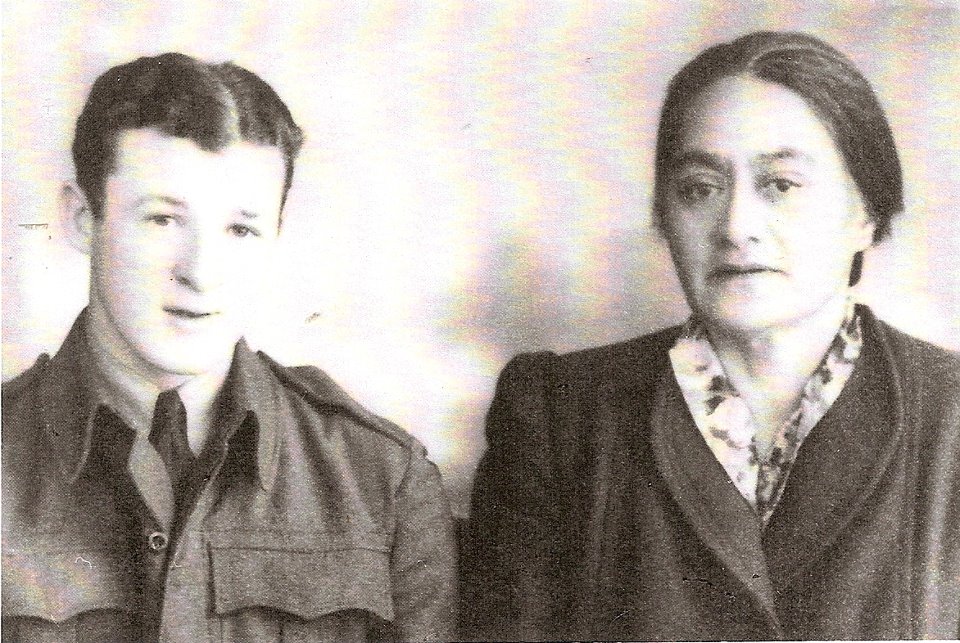
Off to war, he was 17, James Hall Leef with his gorgeous mother Mary Leef.
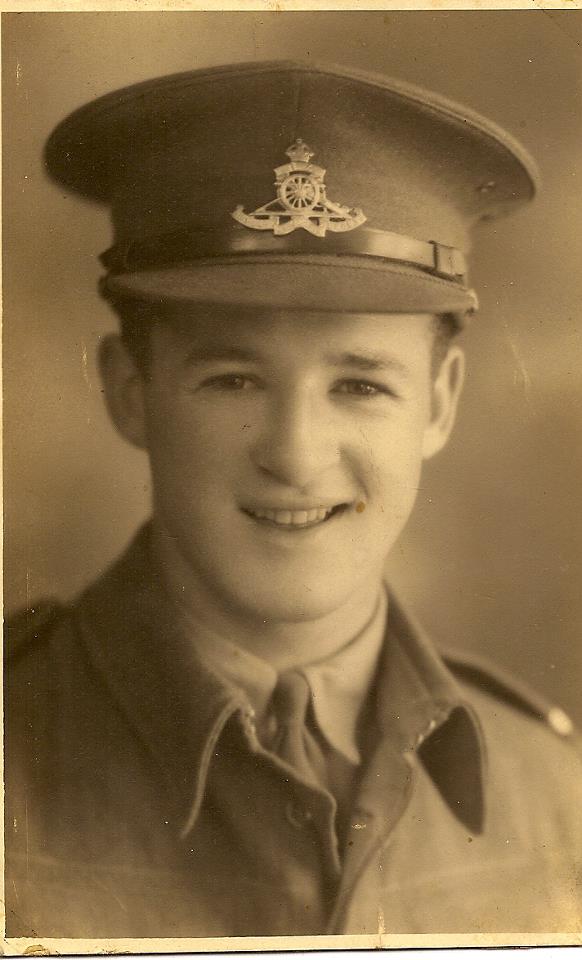
James Hall Leef - Divisional Cavalry Regiment.
They would always sing beautiful simple versions of pop songs so everyone could sing along with them. And Māori have this ability to pick the right songs for a party – so these were always great.
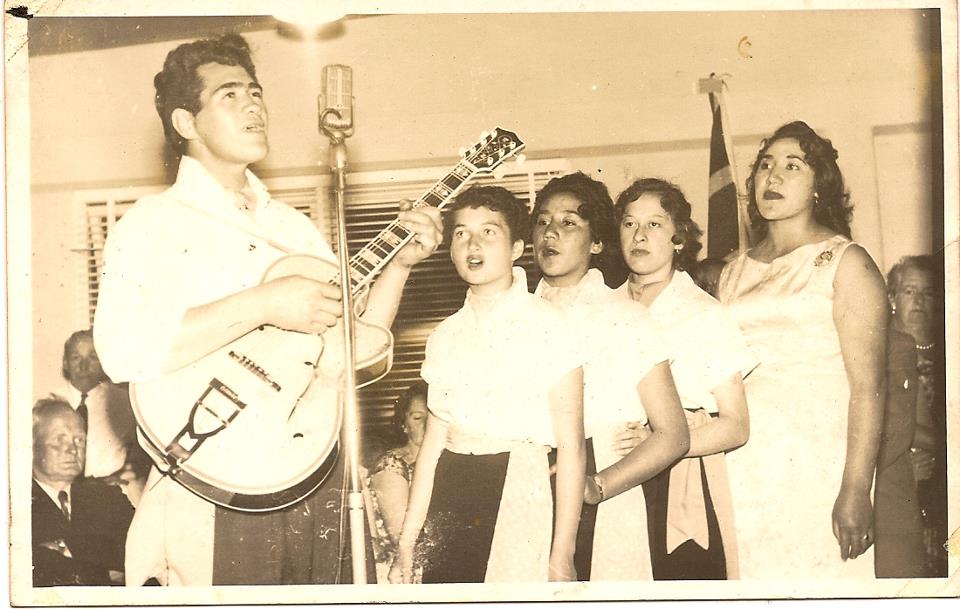
Jim Joseph ..RIP. My earliest hero, achieved the ultimate goal; "played good rhythm guitar, sang beautifully and represented his country playing rugby union". In the Marlborough RSA in Blenheim. "This was the first time I heard an E9"
Frank Zappa – you almost played in his band?
Yes.
What was it about his music that attracted you?
Frank Zappa was worshipped by many people I knew. He was very avant-garde, loved Stravinsky, had a level of musicianship that was just so high and so far ahead of everyone else.
I was every fortunate, was working with a band from Western Australia called ‘Bakery’ and had only been with them for about 12 months. We were doing a gig at Chequers in Goulburn street in 1973, and we actually did a couple of Zappa songs as part of our repertoire, including ‘Road Lady’ which was probably the tamest song Zappa ever wrote.
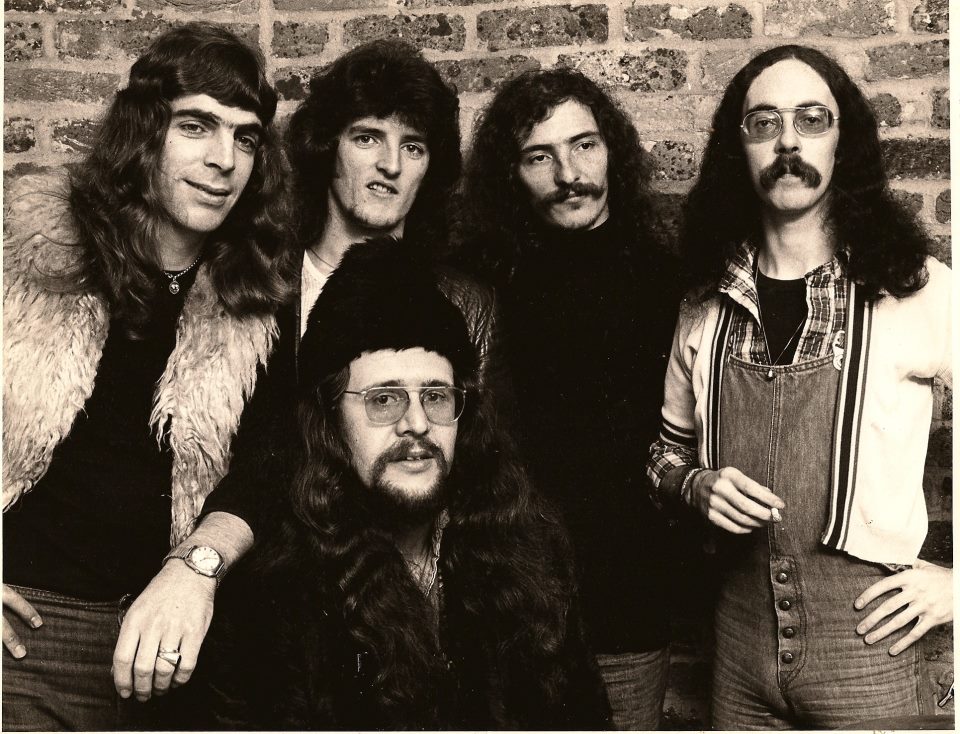
'Bakery' - Barry with Rex Bullen, Hank Davis, Jackie Orszaczky and Peter Walker (Guitar and Vocals).
Road Lady was based on a twelve bar blues and was basically about ladies on the road, atypical Zappa lyrics and a bit of fun. When we were singing that song that night as part of our set I was looking out and thought ‘there’s a guy out there that looks like Zappa – it can’t be’.
We had no idea that he’d actually come into Sydney at the time; I said to my mate Peter Walker, ‘that’s Zappa’ – he said, ‘mate it can’t be.’
We finished the set and this big burly African-American guy came round the back and said ‘I’m blah blah blah – the Tour Manager with Frank Zappa...’ and we just fell on the floor.
He said Frank wanted to have a chat with me. We went out and I was just in awe of course. He invited me to come and have a chat with him where he was staying and said ‘look I really like what you’re doing and I like your voice. I’ve just finished recording an album called ‘Apostrophe (')’ and I’d like you to come back to the States as I want to do something like I used to do with Phlorescent Leech & Eddie (Mark Volman and Howard Kaylan) - the two guys from The Turtles…’
It took me about a minute to agree but then I ran into a few problems. I had a 5a contract with Festival records. I thought they’d be really cool and ‘we wish you all the best – go for it, it’s a good opportunity’ but they were more ‘we don’t mind you going but we can’t release you from the contract’.
They wanted a piece of the action, which is fair enough but Zappa was a very clever, shrewd Jewish businessman – he didn’t see that as a positive. He had his legal department look into it and the upshot is I received a telegram, which I still hang onto, which reads; ‘due to your contractual obligations we can’t bring you into the band’.
So that was the end of that.
We did go on the road with them for two weeks when they were here though – which was fantastic and taught me so much. I hadn’t really been amongst that kind of production or musicians before. I met George Duke, one of the finest keyboard and percussionists in the business, Jean Luc Ponty, an electric violinist – I met all these guys that were just awesome in their field of musicianship.
I hadn’t really connected with that genre of fusion of rock, classical and jazz before. I was more into your straight edged English pop-rock – so it was a real mind-blowing education. It also gave me a bit of a profile to then go on.
That’s when I went to the Musicians Club and we secured that and stayed for so long.
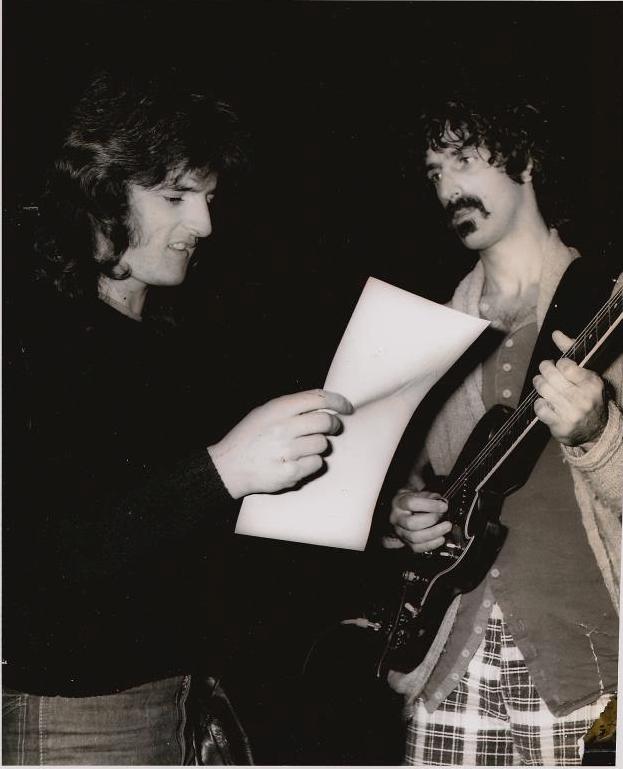
Barry with Frank Zappa - 1973
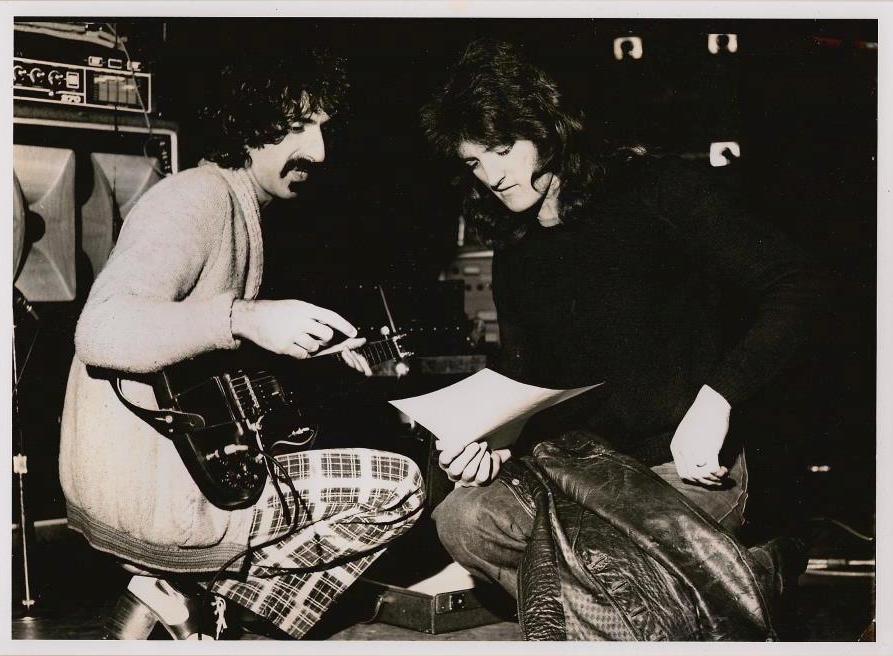
Barry with Frank Zappa - 1973
Speaking of great musicianship – you’re still working with the cream of Sydney session musos?
Yes; I’m very lucky. Just being around that long you get to know and tend to play with the guys who are in your genre of music and become really good friends. You end up playing with each other and don’t lose that.
Most of the guys I work with are known as Session Players, and they work with a lot of other musicians and you just work dates with everybody when they’re available.
I tend to book my bands months ahead as they’re all so busy doing other things as well.
Let’s talk about the new CD ‘Rhythmized’ – how many tracks are there?
There’s Ten tracks. It’s a West Coast sounding genre and is based on some of my favourite Artists, some of whom are also songwriters.
Part of my career over the years has involved working in the studio recording advertising jingles but I never really recorded anything as I’m a bit pedantic about the quality and have such a high regard for these singer-songwriters- ala James Taylor, Daryl Hall, Steve Winwood – just brilliant musicians and brilliant writers.
I was never happy with stuff that I’d written or ever confident enough with what was recorded. With ‘Rhythmized’ I’ve bitten the bullet and gone for it because that’s the way you learn how to do it better.
This whole concept behind this album was to record something as a keepsake for my family. My mum passed away a few years ago and a small amount of money had been put aside and I knew what she wanted me to do with it and so used it to do an album.
This album is dedicated to Nesta, my mum.
How it came about was I worked with a guy called Kere Buchanan, a well known drummer in Australia who has worked with Tina Arena and Marcia Hines, among many others. He’s also a brilliant Producer and Arranger and asked me to sing a track on his album called ‘Goodbye Yesterday’, a very West Coast orientated, very Steely Dan cut.
I went into the studio with him and worked with him on one song called ‘Miss Josephine’.
I loved this track so much and really liked the way he worked – he really seemed to get out of me what I wanted to get out of me.
I rang him a year later and said ‘I really need to do this album, will you come and Produce it?’ – he’d moved to New Zealand by that stage.
He said ‘I have to – and you have to’ so that was it. He came and Produced this album called ‘Rhythmized’.
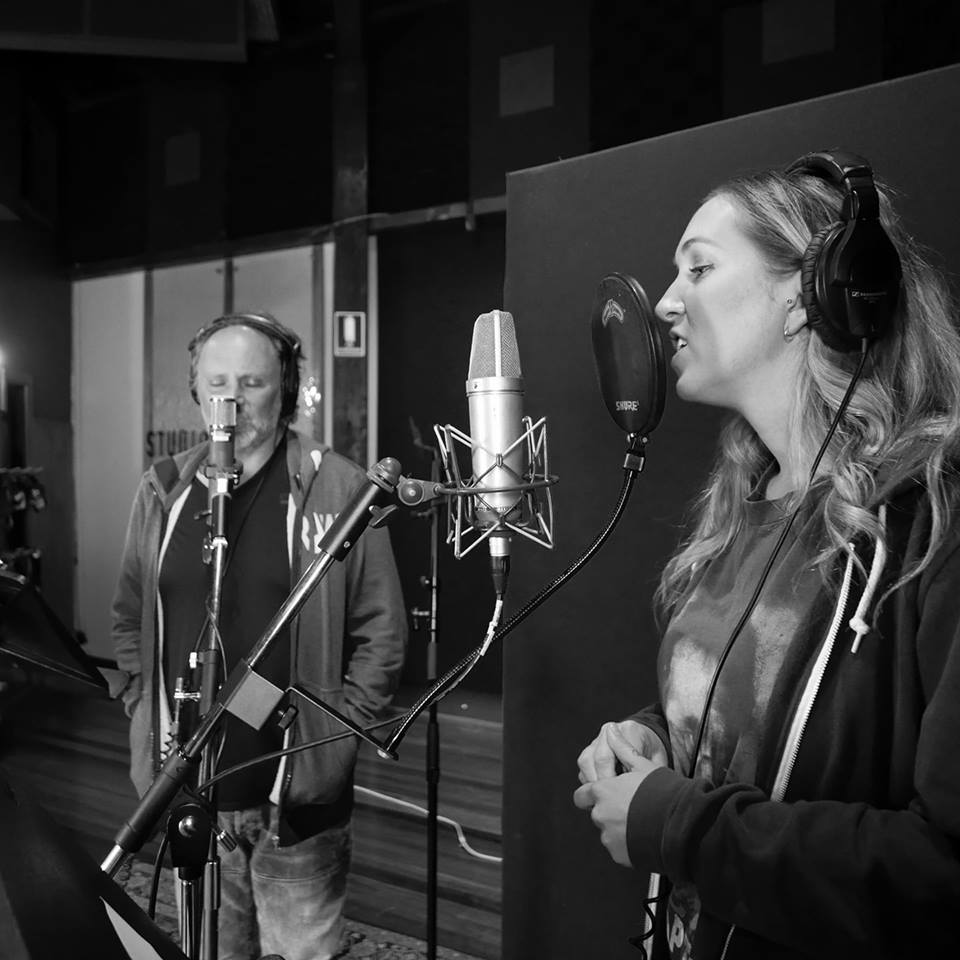
Kere Buchanan and Ashleigh Leef doing vocals for ‘Rhythmized
It is basically the songs that I have loved over the years and songs that I felt I could put my very own stamp on. It has come up so well that I’m proud of it. The local launch will be at Brookvale in late June.
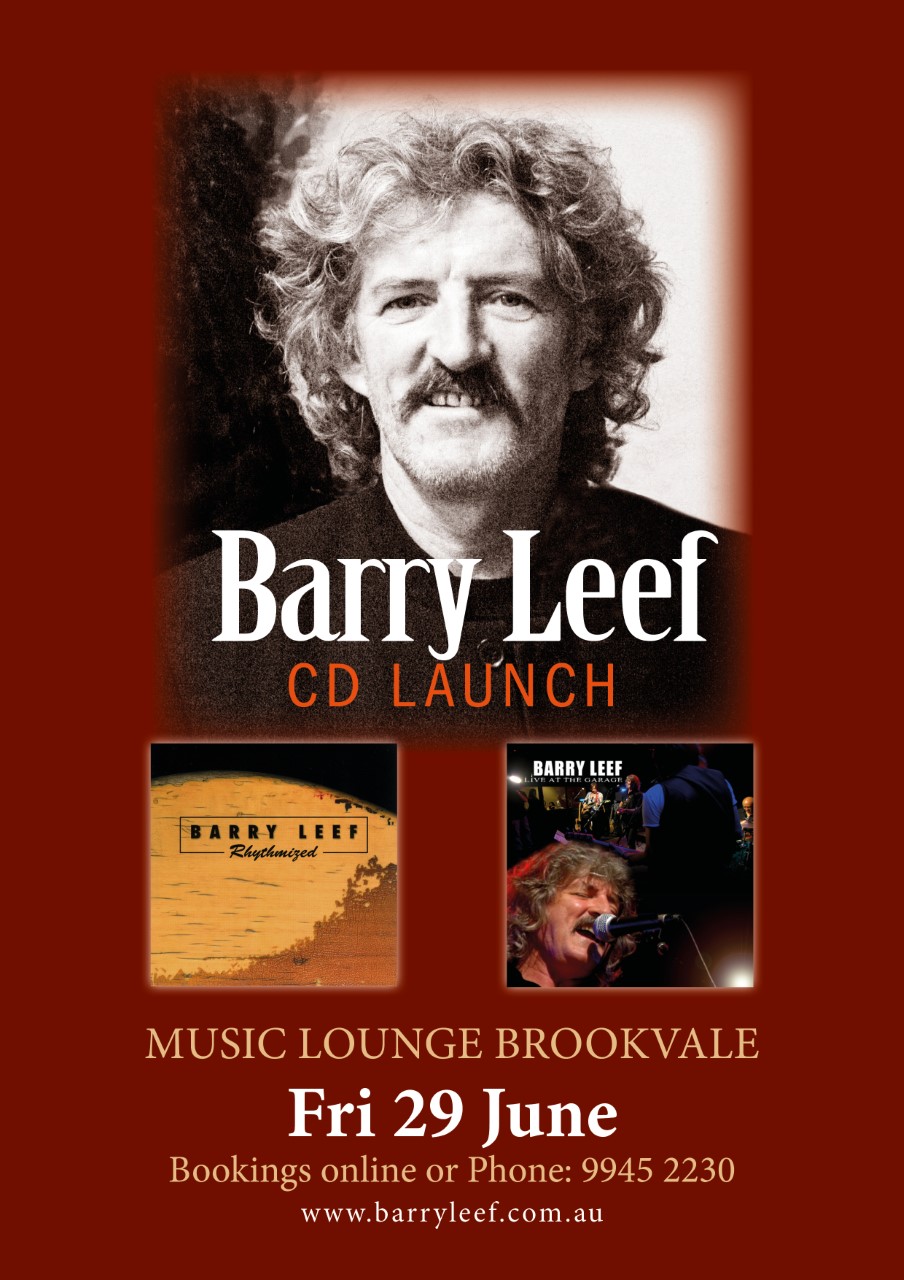
You have been working for over five decades in the music industry – how have you stayed so long at it?
I couldn’t do it if I didn’t have the passion – that and determination is what is required. But firstly you have to be passionate about what you’re doing and what you’re sharing.
I do it because I feel I can connect with people. And I think I’m really fortunate that I was born into and raised in a time when the revolution started for music – this was when Elvis came out – and being fortunate to have been around all this and have so many people come with me, people my age, who still stay with me and want to have music in their lives have subsequently supported me and kept me going.
I really do think that I was lucky to be born into that era first and foremost.
Recently a teenager was singing along with that Kinks song ‘Sunny Afternoon’ in a local shop and I marvelled to him that a song my parents had enjoyed and introduced me to was now becoming known and enjoyed by him – these songs translate across generations – are you finding you also have a next generation audience too?
Yes. That’s the thing about being part of the era when such great music was first created is that a lot of these songs keep coming back all the time, whether in the original being appreciated or a contemporary version being done by a new band. These are just great songs, great music. Or a movie such as The Big Chill will get a rerun with all those great songs playing in the background are heard and they are revived again.
This happens because these are just such high quality songs.
How many guitars do you have Barry?
I’ve always had about three. I do have a friend on the north coast who owns about 89 but I’m not one of those collectors of guitars – I’ve always stuck to my basic three.
I have a Takamine acoustic, which I think everyone should have as they’re so available at any time, you can just pick them up and play or take them somewhere where you don’t need and electric.
I have a 1969 Fender Telecaster that I’ve owned all its life, and it looks like it, but apparently that’s very good when a guitar looks like that.
And a friend put together a Fender Stratocaster for me. I have had a few different guitars during my time but not a lot.
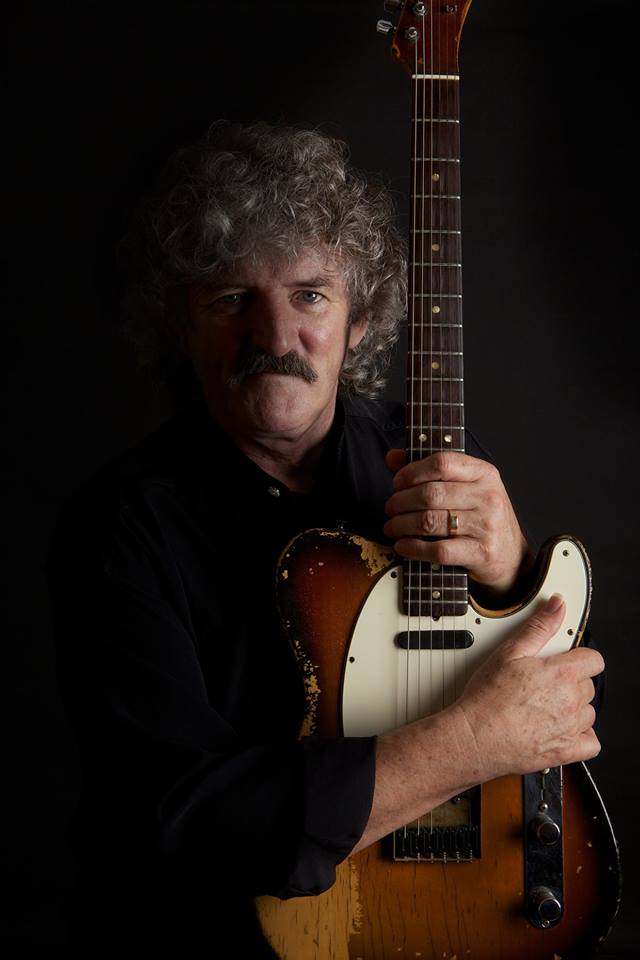
Which is your favourite of all time – any you have let go that you wished you hadn’t?
I did have a Les Paul Junior which was stolen. I loved it, it was a beautiful instrument, a really good rock-rhythm guitar.
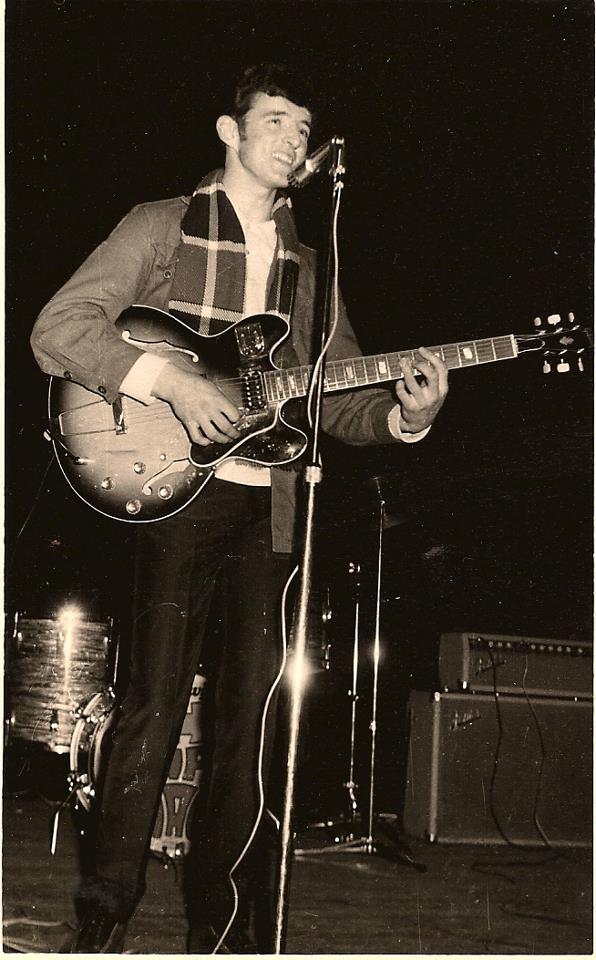
Barry with his Les Paul
I’m really into rhythm and that’s why my album is called ‘Rhythmized’ – I’m more of a rhythm guitarist than a lead guitarist and am proud of what I’ve achieved as a rhythm guitarist.
That too goes back to my childhood when I listened to some of the best rhythm guitarists in the world, the Māoris.
So the Telecaster has always been my favourite guitar in the world as this is a great rhythm guitar.
My thing for years has been to get to be playing with guys with big ears, meaning that they listen. All they needed was for me to start the song, which gave them a) the key, b) the tempo and c) the feel.
Will you be going on tour after the CD launches?
We will have to do some work to promote the album a lot more once the launch gigs are done.
My end goal with that is to do a series of small theatres because each song on the album has a story and I want to share with the public why we recorded that song and what that song is about and why I love it. I want them to know what it is all about so when I play it they have all that information.
Is there a song on ‘Rhythmized’ that is for your mum specifically?
Yes. The song called ‘Forever’.
Because I’ve been blessed with the most wonderful mother in the world, and have been blessed with and am now married to the most wonderful woman in the world, Susan, I wanted to find a song for both of them. This is my heart going out to their love and support and affection. I found this song on a Paul Carrack album – he was with Mike and The Mechanics. I heard it and loved that song.
Lyrically it’s beautiful and expresses everything I feel about those two women and I wanted to do it for them. It’s my appreciation of being loved I guess.
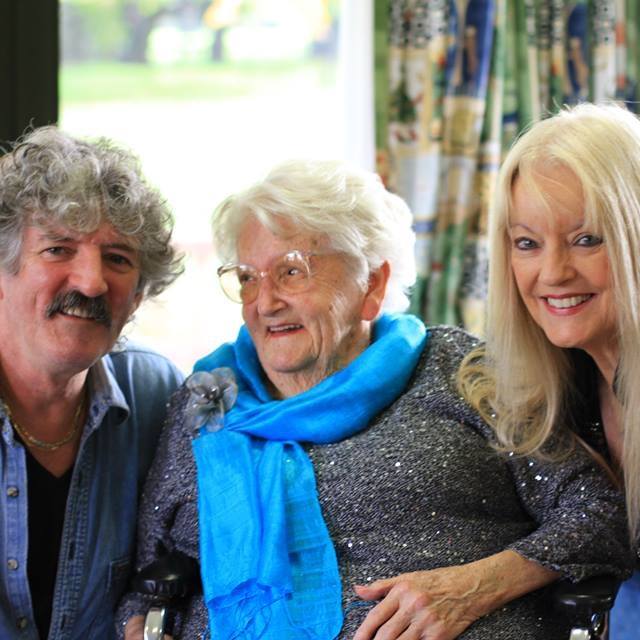
Barry, Nesta and Susie Valentine Leef
Are you a grandfather now?
Yes. I have four grandchildren, although only really recently. My eldest son has two, twin identical girls – they are gorgeous. I have a gorgeous little girl from my youngest son, she is only about six weeks old. And I have a grandson from one of my other daughters who only came into the world recently as well. So it’s all only recent.
Congratulations. When do they get their first music lesson?
(Laughs)
They’re getting music already. It’s so funny – my little twins are getting so active now; they’re hearing things, looking at things and I have played guitar and sung to them since they were babies. Now when I play a record and they know it’s me they go ‘poppi, poppi!’.
The other day I did a radio interview with Grant Goldman on 2SM about the album and apparently the grandkids were at their place going ‘Poppi!, Poppi!’.
They were looking around ‘where is he?’ – they couldn’t see me – that would have been hilarious.
Do you think you have mellowed a little bit by now Barry?
Definitely yes. I was a bit of a rascal a while back – I never meant any harm though, it was just all youthful exuberance – you need that.
Which is your favourite all-time song or album you have done – there are quite a lot you have contributed to or been a part of?
There have been quite a few yes. I think one song that is on the current album ‘Rhythmized’ that has quite affected me is ‘Love Will Come Someday’. I’ve sung this for years in different combinations of bands, I’ve sung it at funerals, at births or christenings – it’s just an amazing song. I think it’s the one I always think ‘that’s me’.
What are your favourite places in Pittwater and why?
I live in a house that overlooks Bilgola Beach, which is obviously my favourite place in the whole wide world.
I love it because it’s so inspiring – I’m looking out on the ocean, looking out on the day to day activity and Nature, such as birds flying up onto the balcony or looking down into a valley of Cabbage Tree Palms. I look out onto yachts sailing of an afternoon, I watch whales coming up the coats during June and then I watch them going back in September; it’s just an incredible spot. The only other place would be the other side and being on Clareville Beach at sunset, with a glass of wine and my darling.
What is your ‘motto for life’ or a favourite phrase you try to live by?
Be Thankful, Be Grateful, and Return the Love.
Notes
Frank Zappa And The Mothers 1973 "Invention In Australia" Tour
Promoter: The Robert Stigwood Organisation
Frank Zappa & The Mothers:
Frank Zappa (guitar, vocals)
George Duke (keyboards, vocals)
Tom Fowler (bass)
Bruce Fowler (trombone)
Ruth Underwood (percussion)
Ian Underwood (woodwinds)
Ralph Humphrey (drums)
Sal Marquez (trumpet, vocals)
Jean Luc Ponty (violin)
Date City / Venue Venue Notes
21 June (Thu.) Brisbane Festival Hall -
22 June (Fri.) Brisbane Festival Hall extra concert
24 June (Sun.) Sydney Hordern Pavilion extra concert
25 June (Mon.) Sydney Hordern Pavilion -
26 June (Tue.) Sydney Hordern Pavilion -
June 28 Melbourne, Festival Hall -
June 29 Melbourne, Festival Hall guest vocalist Barry Leef
July 1 Melbourne, Festival Hall extra concert
July 3 Tuesday Adelaide Apollo Stadium extra concert
July 4 Wednesday Adelaide Apollo Stadium -
July 8 Sunday Sydney Hordern Pavilion extra concert with guest Barry Leef
The version of The Mothers that toured Australia in 1973 was the ninth incarnation of the group and although all Zappa's backing bands were never less than superb (as his many live recordings attest) many fans consider this lineup of The Mothers -- which featured George Duke, Ruth and Ian Underwood and Jean-Luc Ponty -- to be his best-ever touring band. Alongside the landmark early '70s Australian tours by Yes, Roxy Music, Supertramp and Jethro Tull, the Zappa tours are ranked by many concert-goers as being among the best by any overseas act in that period.
The 1973 tour is also notable for the involvement of Australian jazz-rock singer Barry Leef, then the lead singer with Bakery. FZ spotted Barry when he dropped in at Chequers in Sydney. He was impressed enough to invite Barry to audition and subsequently asked him to join the group. Barry appeared with The Mothers at two concerts as guest vocalist on the song "Road Ladies". Sadly, it transpired that Barry's contract with Bakery prevented him from joining The Mothers.
Zappa made numerous radio and TV appearances while in Australia including The Ernie Sigley Show in Adelaide and the ABC's topical discussion program Monday Conference, hosted by Bob Moore.
Our thanks to the Australian Music Database for the above.
Hero (Musical)
Produced by Grahame Bond, the "opera" opens at the Seymour Centre on May 26.Barry Leef plays the lead role supported by Ron Barry, Kris McQuade ... A 10-piece rock band which includes Rory O'Donohue (Aunty Jack ...
Hero is a rock musical with book by Craig McGregor, lyrics by Don Henderson and music by John 'Poli' Palmer. It concerns a pop singer's odyssey in search of stardom with strong undertones of Greek tragedy. The story is about two brothers, loosely based on the Greek myth of Castor and Pollux. The older brother is an ambitious politician, whereas the younger brother is a successful rock star.
The Australian Opera and its NSW Friends supporter group in 1973 commissioned rock journalist McGregor to write a rock or pop opera about his idea of the modern hero. McGregor was inspired to write the musical after watching The Who perform a concert version of their rock opera Tommy in New York.
Hero opened in May 1976 at the Seymour Centre's York Theatre in Sydney, produced by the Australian Opera. The cast included Barry Leef, Juliet Amiet, Kris McQuade, Ron Barry, Paul Johnstone and Ian Turpie. It was directed by Grahame Bond with choreographer Ross Coleman and musical director Geoff Oakes.
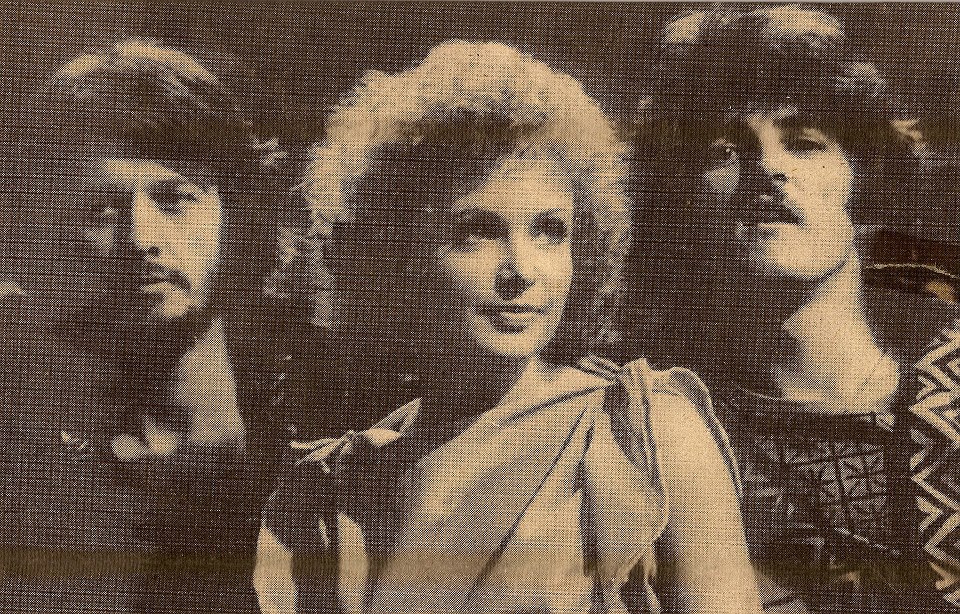
Back in the rock opera days...
Blue Smoke
Barry Leef – Barry Leef Band
Website barryleef.com.au
On Facebook www.facebook.com/barryleef
Music for Grown Ups
The Barry Leef Band is the premier classic rock band featuring a lineup of the finest players in Sydney performing a repertoire of the greatest classic rock songs from an unforgettable era. This was a time when music was fresh and alive…it’s sole purpose was to seduce the listener with a powerful combination of rhythm, lyric and melody – This is what you get, there is no other band quite like the Barry Leef Band – this is not a cover band, rather a group of remarkable musicians playing and interpreting the music they love……Expect nothing but the best.
Rhythmized
Here’s a little story about my now released CD ‘Rhythmized’.
After many years of playing mostly magical gigs with some of the finest musicians and singers in this country and living in recording studios singing hundreds of radio and television ads, I decided it was time I recorded something as a keepsake for my awesome family.
It has taken this long to feel I can now record something worthwhile and something to be proud of, this feeling was because of my passion for excellence and my absolute respect for the finest contemporary songwriters, singers, producers and arrangers of my generation. To aspire to this level has always been a difficult road for me, “nothing was ever good enough”.
A year or two ago, Kere Buchanan (drummer, producer and arranger) called me and asked if I would sing a track on his latest album ‘Goodbye Yesterday’ the track was “Josephine”. I was blown away with the way Kere worked in the studio and so impressed with his producing and arranging skills, working with Kere was such a joy I knew we would work together again.
Last year I called Kere and asked if he would be interested in producing my album, this was his reply:
Barry…Of course man. I’d be honoured!
Give me a call to chat about this. This is a must for you!
K.
Rhythmized is now completed and I have to say I’m so proud of the result, I can’t thank Kere enough for his splendid work on this record, chief engineer Keith Walker for his meticulous work making sure every note recorded was as clean as and his tireless support. All the guys at Studio 301 from assistant engineers to admin, huge thanks. The Band: Peter Northcote, Bill Risby, Dario Bortilin, Mick Skelton, Garry Steel, Tony Azzopardi, Tom Rainey and Ashleigh Leef ...What a pleasure it was to work with these musicians and singers, everything about the sessions was inspiring and total fun.
Lastly, to the most special person who made this all possible, I dedicate this album to my Mum, NESTA LEEF.
Barry Leef
BARRY LEEF RHYTHMIZED 2018
This album is now released and our website shop is under construction. If you would like to purchase the album now please go to
‘Contact Us’ page and leave your postal address and contact details and we’ll be in touch to organise payment and shipping of your order.
Also Available at all good digital outlets. Spotify, Itunes, Google Play, Amazon, Tidal, Deezer, Napster, etc.
The local gig coming up to launch Rhythmized is at The Music Lounge - Brookvale Friday 29th June.
Book here: https://tinyurl.com/ydxuoft8
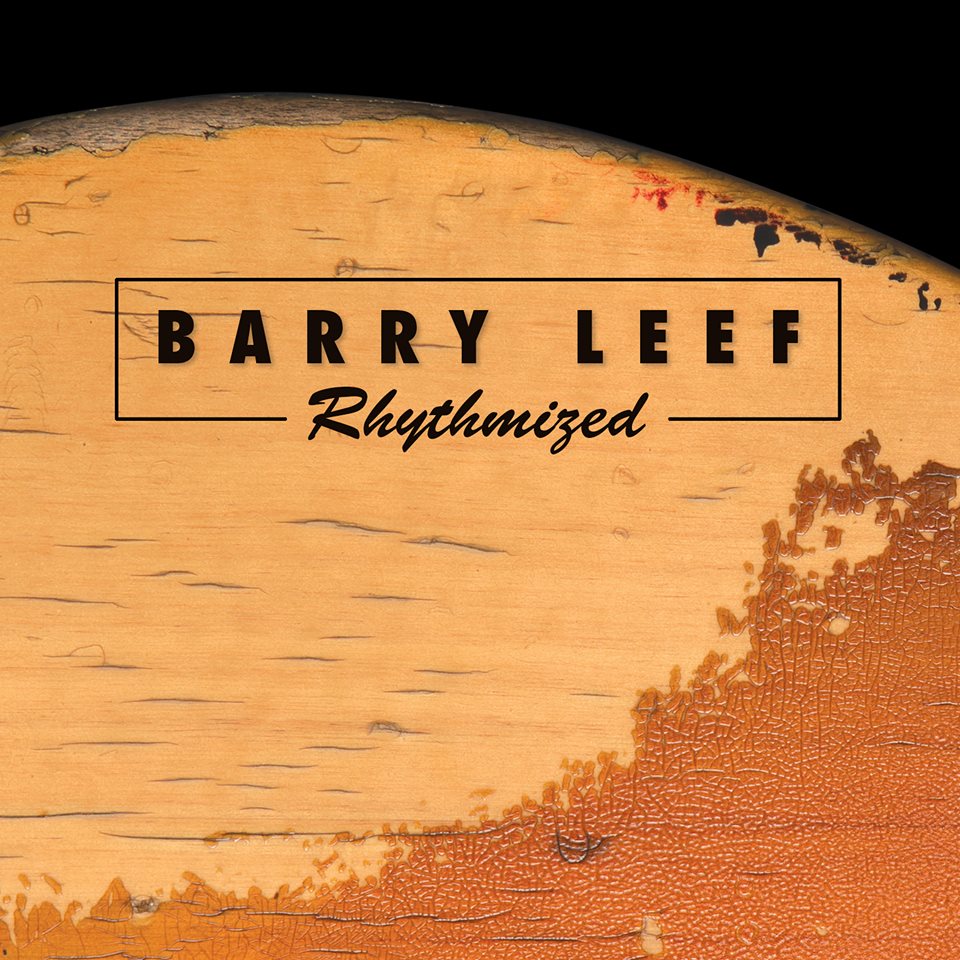

Barry Leef: Forever
Published on Apr 13, 2018 by Keith Walker
Forever, from the Barry Leef album 'Rhythmized'. Producer/Arranger Kere Buchanan, Engineer Keith Walker recorded at Studio 301 Sydney.
Barry Leef - Cottage For Sale - Ep 2
Published on Aug 29, 2016 by Keith Walker
Peter Northcote - Guitars
Bill Risby - Keys
Dario Bortolin - Bass
MIck Skelton - Drums
Production - Kere Buchanan
Recording and mix - Keith Walker
Antonia Gauci - Pro Tools
Video - Martin Coombes and Mark Avis
look out for Barry Leef's story in future EPs.
Recorded at Studio 301 Sydney, Australia